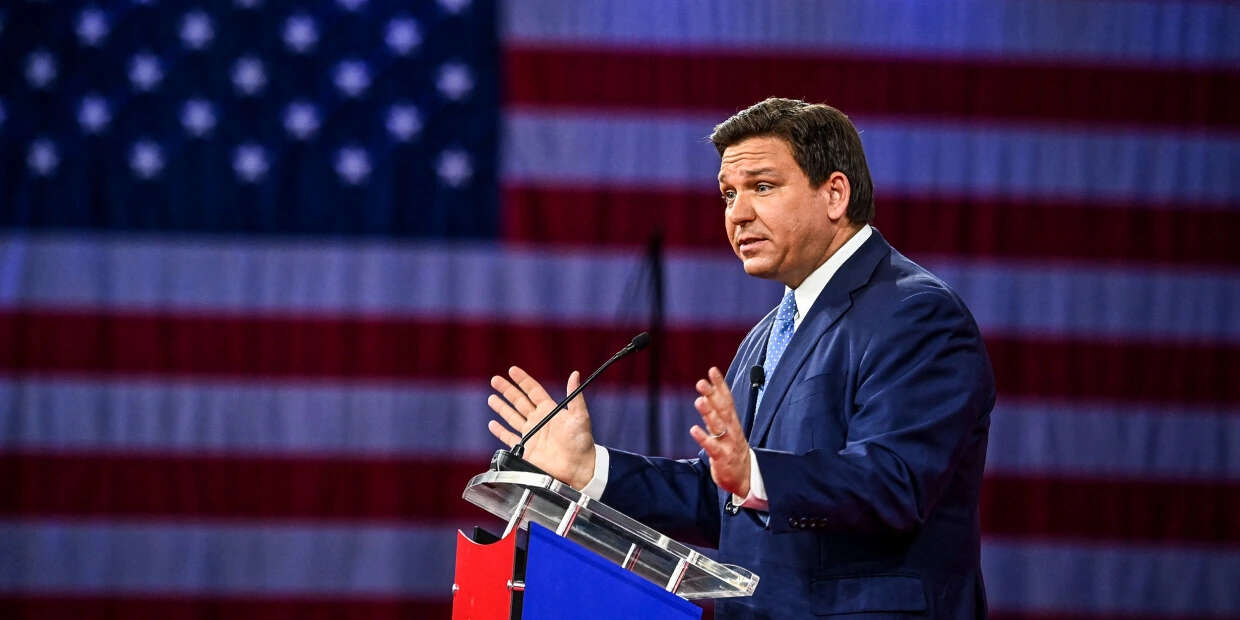
Florida Gov. Ron DeSantis, seen here February 24, 2022, signed into law a bill that would require private companies to use the E-Verify system.
Summary
Florida Governor Ron DeSantis signed an immigration reform bill into law on May 11, 2023. The law mandates that private employers use the federal E-Verify system to verify workers’ immigration status. The law goes into effect July 1.
Supporters of the law claim that it will safeguard jobs and enhance national security. However, ahead of the implementation, some employees in industries such as construction and agriculture have already chosen to leave their jobs and relocate to states with more lenient immigration laws.
The Bill
The bill, known as Senate Bill 1718, was passed by the Florida House last week and signed this week. It applies to private employers with 25 or more employees. The law requires them to utilize the E-Verify system when hiring to ensure legal authorization to work in the United States. The legislation imposes fines of $1,000 per day on employers who fail to comply. It also permits random audits of employers suspected of hiring unauthorized immigrant workers.
Background
Several other states, including North Carolina, South Carolina, Mississippi, Georgia, Arizona, Alabama, and Utah, already require private employers to use E-Verify. In Florida, public contracts already necessitate E-Verify certification for workers. Subcontractors, as well, must provide sworn statements confirming that they do not employ unauthorized immigrant labor.
The current system in Florida allows private businesses to use either E-Verify or I-9 documentation for employee verification. However, Gov. DeSantis argues that the I-9 system poses enforcement challenges. Consequently, this new law is likely to have a significant impact on industries that rely on the I-9 system. It may lead to changes in business practices to avoid compliance with the 25-employee threshold.
“I anticipate this law will result in further segmentation of the industry with smaller subcontractor labor groups falling under the 25-employee limit to avoid compliance with E-Verify,” said Trent Cotney, partner and construction team leader for Tampa, Florida-based Adams and Reese LLP.
Widening Labor Gap
Experts anticipate that the legislation will exacerbate the skilled labor shortage in the construction industry. Industries like construction have historically relied heavily on immigrant workers. Julia Maskivker, a political science professor, warns that the bill could have negative economic consequences for most businesses in Florida.
“This legislation will likely have a detrimental effect on the economy here in [Florida], because it will make freedom of contract and freedom to labor harder to actually exercise — and this may have negative effects on consumer prices and on inflation consequently,” Maskivker said.
Maskivker also criticizes the current immigration system at both federal and state levels and argues that E-Verify is not a viable solution. She highlights that stricter laws regarding undocumented labor discourage workers from contributing to the economy. Maskivker urges that this will lead to losses for employers, workers, and the economy as a whole.
Learn more about State by State Compliance









